A Voice in the Wilderness is a true gem. Mr.Moeller
has eleoquently tied in theology with the Constitution,
Founding Fathers and the Bill of Rights. There is a move to
disconnect these unique, forthright and freedom protecting
documents from our current history. The Founding Fathers
knew what they were doing. They knew NO document was
going to ever be perfect, man is not perfect, nor can what
man does, ever be perfect. That said, The Consitution brought
in our founding theologoy, the discussion of God, not religion
and guaranteed FREEDOM FOR ALL. All religions and ideologies.
These men knew that our Judeo-Christian heritage was instrumental
back then and they knew it would be the same in the future. They
warned against extremeism from either side, right or left. For with
extremeism comes polarization. That is what we have today. Are
we ashamed of our freedom, liberty and that a creator is what gave us
these freedoms? It seems so today as our leaders trot about the globe
apologizing for our past history and how this country was built.
It was not built on diversity and multiculturalism but again,
FREEDOM FOR ALL. The founding fathers had the right building blocks
for our foundation. There is a place to agree on, to strike an accord
between the extremes that truly threaten to tear this country apart.
Enjoy RJ Moeller as he is a true believer in our freedom and how the
Constitution has worked to ensure that Freedom for all for over 220 years.
Mere Conservatism-Theology
by: R.J. Moeller
(Note: If you haven't read the Mere Conservatism Intro yet, take a minute and familiarize yourself with what we're trying to accomplish with this series of essays.)
Theology, history, and economics are the three prisms through which my conservative view of the world can be most clearly seen and understood. Obviously these are three broad categories to draw upon, but stick around for each of the next three weeks as I will be narrowing down what it is I mean by each of these loaded terms.
I completely appreciate that for many Americans the word “theology” is perhaps scary, confusing, misunderstood, or meaningless. It’s okay to admit that, even if you consider yourself a spiritual person.
Theology is simply the study, or understanding, of God.
Every person has a theology, even atheists. They make the bold claim that there is certainly no God. Keep in mind that we are leagues away in this intellectual journey from making declarations as to which God is the true Higher Power. I’m merely attempting to help define theology, and then explain the type of theology that I believe usually leads to a conservative outlook on life. If you consider yourself liberal (or anything else) and find that you agree with my sentiments today, then perhaps we aren't as far apart as our partisan prejudices would have us believe.
The presupposition of my definition for theology is that one has already actually thought about God, about a Higher Power. Looking back on our lives, it is nearly impossible to separate the question of God from our own experiences of asking the “Why am I here?” and “What is my purpose?” questions that rightly plague us all. You can brush these questions off for much or all of your life, but the intellectually honest person is confronted with them and eventually says, “Results be damned: I’m getting to the bottom of life’s meaning and God’s existence.”
On a side note: If you have never reached this point of candid self-reflection in your life, I do not intend to debate the existence of God here and now, but we cannot avoid Him in a discussion of America, let alone American conservatism.
As we continue our discussion about theology, add on to the layers of existential soul-searching I just mentioned the practical, daily implications of those eternal questions. For example, issues such as abortion, murder, capital punishment, and war carry with them critically important moral conundrums that no responsible citizen should ignore. Underlying all of this, in the context of a free society like our own, is the question of “rights.”
Here is where I believe the theology of an American matters. Don’t confuse theology with “religion.” You belong to a religion, but you believe in a particular theology.
The question before us, as fellow citizens of a republic, is the genesis of our rights.
Where do they come from? Does everyone have them? Can they be taken away? Should they ever be taken away? What can and/or should be done if they are taken away?
Thomas Jefferson, the author of the Declaration of Independence, believed in a Higher Power, but in one who created the world, wound it up like a watch, and then walked away to let things play out as they will. Jefferson believed that like a watch there were certain truths, what one might call Natural Laws, which governed the universe. He was what is known as a “deist.”
He was also a lawyer and a rationally thinking man.
The core of his reasoned defense for America’s right to be free from British tyranny was this: “All men are endowed by their Creator with certain inalienable rights.” This is, in my opinion, the single most distinctive thing about America. The Jewish people of the Old Testament were the first to claim that mankind was made in God’s image. Jefferson, a deist no less, and our remarkable Founding Fathers took the logical next step and said “If God created us, then our rights come from Him, not a king.”
These "truths" were considered to be "self-evident"...as in, "You have to go out of your way to ignore or deny them."
How does one explain where rights come from without a Higher Power? How does one explain the history of this blessed nation without coming in to contact with a Higher Power?
If it is not God, then our rights are in my opinion arbitrary and illusionary. If our rights do not come from someone or something higher than ourselves, namely a Creator, then we are entirely dependent on the whims of the State.
You don’t have to worship on Sunday morning at Sarah Palin’s church or profess belief in a Six-Day Creation to acknowledge the importance of this point. You don’t have to (and shouldn’t) be the type of person who calls America the “Second Israel” to appreciate the uniqueness of this country’s fundamental claims about life, liberty, and the pursuit of happiness.
The irrefutable genius of our Founders was this: led by their undeniable Judeo-Christian theological influences and values, they conceived a way to ground our national system in theology without forcing people to be religious. You can believe whatever it is you want about God, Jesus, Buddha or the Hale-Bopp Comet. Just remember that this freedom comes from the worldview of our Founders that recognized that our Creator affords each of us a similar freedom while on this earth to accept or reject Him. The system He set up isn’t dependent upon our liking it, but merely accepting it.
The Founding Fathers were saying. “Go ahead and pray (or not pray) to God in any way you see fit – but we believe in a Higher Power and the only possible chance for sustained freedom and liberty we can see is a nation where everyone, especially those who are lent power to lead, is held to a higher standard.”
And from this a second, and for now, final, theological conclusion can be drawn: mankind is messed up. We are “fallen,” the God-fearing man or woman might say. This should be the most obvious theological point in the world. No one disputes that the world has problems. Our neighbors have problems. We have problems. Things aren’t as they should be a lot of the time.
As G.K. Chesterton (pictured right) phrased it in Orthodoxy, "Certain new theologians dispute original sin, which is the only part of Judeo-Christian theology which can really be proved."
Many secular-progressives excitedly say that while the Declaration of Independence may contain some “quasi-religious rhetoric,” that the real test is the Constitution and its alleged lack of “God language.” Argument won, right?
Well, first of all, there shouldn’t be any argument about the historical fact that the men who put together the framework for our republican democracy, who wrote the Bill of Rights, who signed the Declaration, who led the colonial troops in to battle were predominantly and overwhelmingly religious, theological dudes. This is simply the historical narrative of the country we all happen to live in.
No one wants a theocracy, but to write the Judeo-Christian heritage out of our nation’s history is preposterous and should not be taken seriously. For better or worse, this is who we are.
But more importantly, I contend that the Constitution is implicit in its theology. The very first thing our Framers wrote down was the concept of freedom of religion. Want to take a guess what (or Who) was on their minds when they wrote that? Certainly they were wanting to protect against a State-run church, the kind they had (have) back in Europe, but the reality of a Creator loomed in the words and on the pages of nearly everything these visionary men spoke and wrote.
Was anyone expecting James Madison and the boys, to prove how much they believe in a Higher Power, would have to have thrown in an “Oh by the way, God rules and someday secular atheists like Chrisopher Hitchens will drool,” shout-out in the first ten amendments? If they had included a specific “Jesus is my Homeboy clause” in the Bill of Rights it would have flown in the face of the liberty-based sentiments from the Declaration that was their case to the world as to why they deserved to be free.
Just because haters on the secular Left and zealots on the religious right don’t seem to comprehend these subtle, yet profound, truths about the Founders intentions doesn’t mean we all miss them.
The Constitution is also inherently theological regarding my second point from before: the fallen state of mankind. The separation of powers would not be necessary in a world where enough hope, change, progress, and blaming Fox News for its “bias” could solve all social, political and moral ills. Of course we need protection from those who inevitably do wrong, and consequently we must have debates and votes regarding how much of our liberties we are willing to exchange for security.
Compromise is a reality of life. But so are sin and crime and murder and ponzi schemes and everything in between realities of life. The Founders believed things could be better, but never perfect.
They also believed that a significant contributor to ensuring things would be perennially worse was the centralization of power in the hands of a few “elites” who promised the rest of the population that they knew what was best.
From these two fundamental theological concepts - the existence of a Creator who grants us our rights and the natural depravity of man - a coherent, cohesive, and typically conservative worldview begins to form.
If you came to my church on Sunday or asked me over coffee to explain my religious faith in Jesus Christ, I’d be more than happy to share my life and my doctrinal beliefs regarding the God of the Old and New Testament. I could draw upon deeper biblical insights to explain why I believe Scripture and Christian teaching and tradition point people to a conservative worldview.
But in the public square, in the marketplace of ideas, in a free society that should welcome all points of view, and in an essay attempting to define the basic theological ideas pertinent to a conservative outlook on life, I only need the two I’ve already stated.
This is just the first stop on our intellectual journey, but it is a big one.
http://rjmoeller.com/2009/10/mere-conservatism-theology/
Voice in the Wilderness: Mere Conservatism- Theology
Posted by
PatriotUSA
at
1:06 AM
Labels:
Constitution,
Dutch Freedom Party,
Founding Fathers,
Theology
Subscribe to:
Post Comments (Atom)





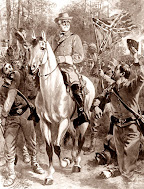
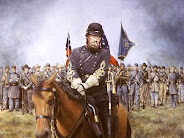
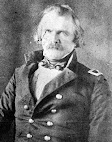
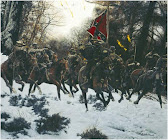


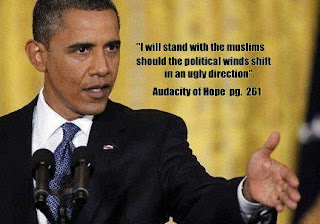

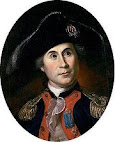









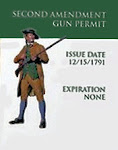




0 Comments - Share Yours!:
Post a Comment